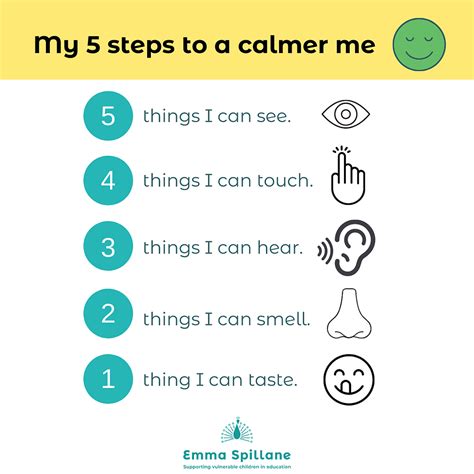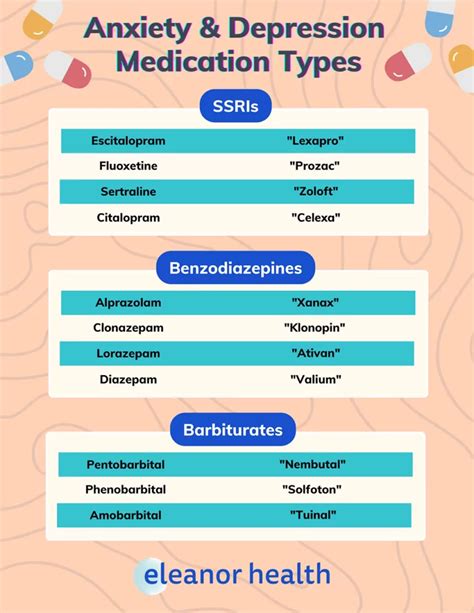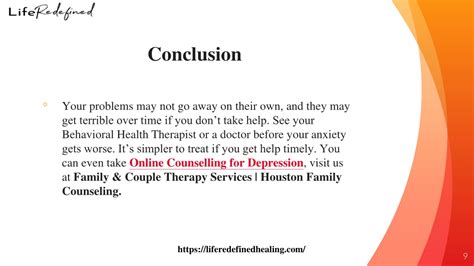Intro
Anxiety is a pervasive mental health issue that affects millions of people worldwide. It can manifest in various forms, including generalized anxiety disorder, panic disorder, and social anxiety disorder, among others. While anxiety can be debilitating, there are several treatment options available, including therapy, lifestyle changes, and medication. Antidepressants, in particular, have been found to be effective in managing anxiety symptoms. In this article, we will delve into the ways antidepressants can help alleviate anxiety and explore the different types of antidepressants used to treat anxiety disorders.
Anxiety can have a significant impact on a person's daily life, causing feelings of fear, worry, and apprehension that are overwhelming and interfere with daily activities. If left untreated, anxiety can lead to depression, substance abuse, and even suicidal thoughts. Therefore, it is essential to seek professional help if symptoms of anxiety persist. Antidepressants are commonly prescribed to treat anxiety disorders, and they have been shown to be effective in reducing symptoms of anxiety in many people.
The use of antidepressants to treat anxiety is based on their ability to alter the levels of certain neurotransmitters in the brain, such as serotonin and norepinephrine, which play a crucial role in regulating mood and anxiety. By increasing the levels of these neurotransmitters, antidepressants can help reduce symptoms of anxiety and improve overall mental health. In addition to their use in treating anxiety, antidepressants can also be used to treat other mental health conditions, such as depression and obsessive-compulsive disorder.
How Antidepressants Work to Reduce Anxiety

Antidepressants work by altering the levels of neurotransmitters in the brain, which helps to reduce symptoms of anxiety. The most commonly used antidepressants to treat anxiety are selective serotonin reuptake inhibitors (SSRIs), serotonin-norepinephrine reuptake inhibitors (SNRIs), and benzodiazepines. SSRIs, such as fluoxetine (Prozac) and sertraline (Zoloft), work by increasing the levels of serotonin in the brain, which helps to reduce symptoms of anxiety. SNRIs, such as venlafaxine (Effexor) and duloxetine (Cymbalta), work by increasing the levels of both serotonin and norepinephrine in the brain, which helps to reduce symptoms of anxiety and depression.
Types of Antidepressants Used to Treat Anxiety
There are several types of antidepressants that can be used to treat anxiety disorders, including: * SSRIs: fluoxetine (Prozac), sertraline (Zoloft), and paroxetine (Paxil) * SNRIs: venlafaxine (Effexor) and duloxetine (Cymbalta) * Benzodiazepines: alprazolam (Xanax) and clonazepam (Klonopin) * Tricyclic antidepressants: imipramine (Tofranil) and amitriptyline (Elavil) * Monoamine oxidase inhibitors (MAOIs): phenelzine (Nardil) and tranylcypromine (Parnate)Benefits of Using Antidepressants to Treat Anxiety

The benefits of using antidepressants to treat anxiety include:
- Reduced symptoms of anxiety: Antidepressants can help reduce symptoms of anxiety, such as feelings of fear, worry, and apprehension.
- Improved sleep: Antidepressants can help improve sleep quality, which is often disrupted in people with anxiety disorders.
- Increased energy: Antidepressants can help increase energy levels, which can be low in people with anxiety disorders.
- Improved concentration: Antidepressants can help improve concentration and focus, which can be impaired in people with anxiety disorders.
- Enhanced overall well-being: Antidepressants can help improve overall well-being and quality of life, which can be negatively impacted by anxiety disorders.
Common Side Effects of Antidepressants
While antidepressants can be effective in reducing symptoms of anxiety, they can also have side effects. Common side effects of antidepressants include: * Nausea and vomiting * Headaches * Dizziness and lightheadedness * Insomnia and sleep disturbances * Weight gain or loss * Sexual dysfunctionHow to Get the Most Out of Antidepressant Treatment

To get the most out of antidepressant treatment, it is essential to:
- Take the medication as prescribed: It is crucial to take the medication exactly as prescribed by the doctor, without missing any doses or taking more than the recommended dose.
- Be patient: Antidepressants can take several weeks to start working, so it is essential to be patient and not get discouraged if symptoms do not improve immediately.
- Combine with therapy: Antidepressants can be more effective when combined with therapy, such as cognitive-behavioral therapy (CBT) or psychodynamic therapy.
- Make lifestyle changes: Making lifestyle changes, such as regular exercise, healthy eating, and stress management, can help improve overall mental health and reduce symptoms of anxiety.
Alternative Treatments for Anxiety
While antidepressants can be effective in reducing symptoms of anxiety, there are alternative treatments available. Alternative treatments for anxiety include: * Therapy: CBT, psychodynamic therapy, and other forms of talk therapy can be effective in reducing symptoms of anxiety. * Lifestyle changes: Regular exercise, healthy eating, and stress management can help improve overall mental health and reduce symptoms of anxiety. * Herbal supplements: Herbal supplements, such as St. John's Wort and passionflower, can be effective in reducing symptoms of anxiety. * Mindfulness and meditation: Mindfulness and meditation can help reduce symptoms of anxiety by promoting relaxation and reducing stress.Conclusion and Next Steps

In conclusion, antidepressants can be an effective treatment option for anxiety disorders. By understanding how antidepressants work and the different types of antidepressants available, individuals can make informed decisions about their treatment. It is essential to work with a healthcare professional to determine the best course of treatment and to get the most out of antidepressant treatment. By combining antidepressants with therapy and lifestyle changes, individuals can reduce symptoms of anxiety and improve overall mental health.
What are the most common types of antidepressants used to treat anxiety?
+The most common types of antidepressants used to treat anxiety are SSRIs, SNRIs, and benzodiazepines.
How long does it take for antidepressants to start working?
+Antidepressants can take several weeks to start working, so it is essential to be patient and not get discouraged if symptoms do not improve immediately.
Can antidepressants be used in combination with other treatments?
+Yes, antidepressants can be used in combination with other treatments, such as therapy and lifestyle changes, to improve overall mental health and reduce symptoms of anxiety.
What are the common side effects of antidepressants?
+Common side effects of antidepressants include nausea and vomiting, headaches, dizziness and lightheadedness, insomnia and sleep disturbances, weight gain or loss, and sexual dysfunction.
How can I get the most out of antidepressant treatment?
+To get the most out of antidepressant treatment, it is essential to take the medication as prescribed, be patient, combine with therapy, and make lifestyle changes.
We hope this article has provided you with a comprehensive understanding of how antidepressants can help alleviate anxiety symptoms. If you have any further questions or concerns, please do not hesitate to reach out to a healthcare professional. Additionally, we encourage you to share your thoughts and experiences with antidepressant treatment in the comments section below. By sharing your story, you can help others who may be struggling with anxiety and provide valuable insights into the effectiveness of antidepressant treatment.
